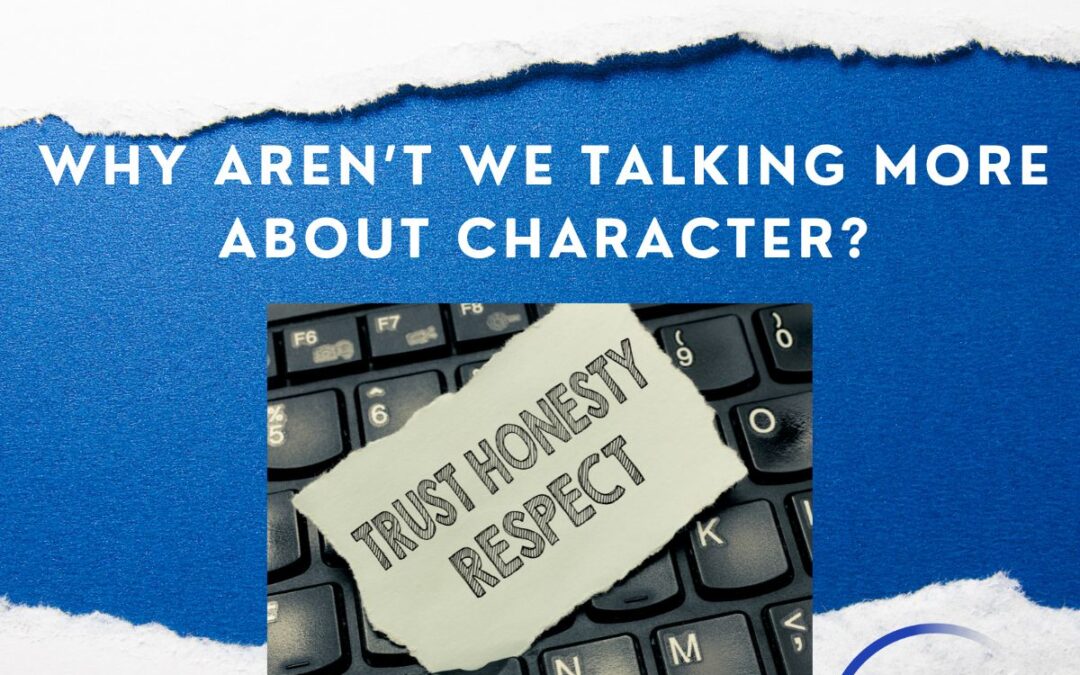Character… let’s talk about this. What does your character look like? The core of leadership extends far beyond mere titles. While titles signify authority, effective leadership is rooted in character traits that inspire trust, collaboration, and transformative change. I want to delve into critical facets of leadership character that transcend traditional hierarchical structures, offering insights into cultivating impactful leadership, because this is what we really should be talking about when we talk about leadership!
What is character anyway? Character refers to the combination of qualities or attributes that make up an individual’s moral and ethical values, guiding their behavior and decisions. It encompasses traits such as honesty, integrity, courage, empathy, and reliability. Here are examples illustrating these qualities:
- Honesty: Always telling the truth, even when it’s difficult or inconvenient. For example, admitting a mistake rather than trying to cover it up.
- Integrity: Consistently acting in accordance with one’s values and principles. For instance, following through on commitments and honoring promises.
- Courage: Facing challenges or adversity with strength and bravery. This could be standing up for what is right, even in the face of opposition.
- Empathy: Understanding and sharing the feelings of others. For example, showing compassion and offering support to a colleague going through a tough time.
- Reliability: Being dependable and trustworthy. This might involve consistently meeting deadlines or being there for team members when needed.
Here are a few others that I think individuals need to step into their greatness:
The Power of Authenticity: Building Trust and Engagement
Authenticity is not just a buzzword but a foundation of effective leadership. Leaders who authentically express their values, beliefs, and vulnerabilities create genuine connections with their teams. This fosters an environment where individuals feel valued, understood, and motivated to contribute their best. Authentic leaders empower their teams to take risks, innovate, and adapt to change, driving organizational resilience and growth.
Emotional Intelligence: Understanding Complex Interpersonal Dynamics
Emotional intelligence (EI) is indispensable for navigating diverse personalities and complex workplace dynamics. Leaders with high EI can perceive, understand, and manage their own emotions, as well as empathize with others. This ability to connect emotionally with team members fosters trust, enhances communication, and promotes a culture of collaboration and inclusivity. EI-equipped leaders adeptly manage conflicts, inspire motivation, and champion a positive work environment conducive to high performance.
Integrity and Ethics: Cornerstones of Trustworthiness
Integrity and ethical conduct are necessary to earning and maintaining trust in leadership roles. Leaders who demonstrate unwavering integrity in their decisions and actions foster a culture of transparency and accountability. By upholding ethical standards, leaders inspire confidence among stakeholders, fortify organizational values, and mitigate risks associated with unethical behavior. Ethical leadership cultivates a cohesive and principled workforce committed to collective goals and sustainable success.
Servant Leadership: Empowering Others for Collective Success
Servant leadership is going beyond titles, people, and money, prioritizing the needs and development of others. Leaders who adopt a servant leadership approach selflessly empower their teams, enabling them to thrive and achieve their full potential. This leadership style promotes a culture of empathy, collaboration, and mutual respect, where individuals feel valued and motivated to contribute meaningfully. Servant leaders prioritize organizational success over personal gain, fostering a cohesive and high-performing workforce dedicated to shared objectives.
These character traits enable leaders to inspire trust, drive innovation, and cultivate a resilient organizational culture. By embodying these principles, leaders can overcome complexities, seize opportunities, and lead their teams to sustained success. Leadership character, not just formal titles, is the secret of enduring organizational impact and ethical leadership in business.
Do you agree with my thoughts on leadership character? Did I forget any character traits that should be possessed? If so, what would you add to this list? I’d love to hear from you. Please share this article or find me on social and let’s continue the conversation!
#EthicalLeadership #IntegrityMatters #LeadershipValues #CharacterDriven

